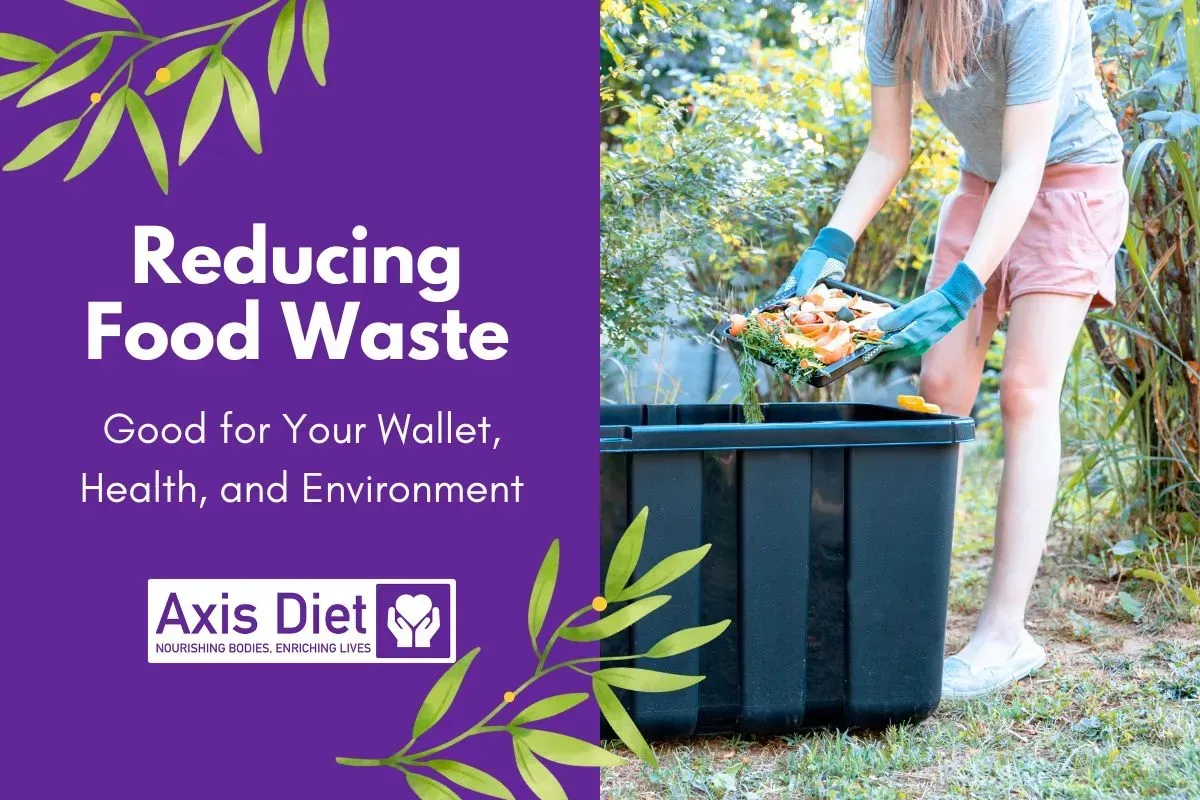
Reducing Food Waste: Good for Your Wallet, Health, and the Environment
World Environment Day is just around the corner, and this year, we’re shining a spotlight on a critical issue: food waste. Did you know that about one-third of all food produced worldwide is lost or wasted? These staggering figures aren’t just a loss for our wallets—they’re also a major concern for the environment and our health.
So, how can you take action this World Environment Day? By reducing food waste! Cutting down on food waste isn’t just great for your wallet; it also promotes healthier eating habits and helps protect our planet. Read on for practical tips on how you can minimize food waste and maximize benefits to your wallet, health, and the environment.
The Impact of Food Waste
Food waste occurs at all stages of the food chain, from the farm to your kitchen. Wasted food means wasted resources—water, energy, and land. Furthermore, when food waste decomposes in landfills, it generates methane, a potent greenhouse gas that contributes to climate change.
Every year, approximately one-third of all food produced for human consumption worldwide goes to waste. That’s around 1.3 billion tonnes of food that could have been eaten. This waste has significant consequences:
- Economic Impact: When we throw away food, we’re also throwing away money. The average family could save several hundred dollars per year simply by reducing their food waste.
- Health Impact: Wasting food often means that we’re not planning our meals effectively, which can lead to poorer dietary choices.
- Environmental Impact: Food waste contributes to greenhouse gas emissions and wastes the water, energy, and other resources used to produce, transport, and dispose of food.
How Reducing Food Waste Saves You Money
Throwing away food is the same as throwing away money. By purchasing only what you need and using all the food you buy, you can significantly reduce your grocery bills. For instance, planning meals, using leftovers creatively, and properly storing food can help you get the most out of your food purchases.
Reducing food waste has a range of benefits:
- Save Money: Buying only what you need and using all that you buy can result in significant cost savings.
- Improve Your Diet: Planning meals and eating fresh food can lead to healthier dietary choices.
- Protect the Environment: By reducing food waste, we can lessen greenhouse gas emissions, conserve water and energy, and reduce the demand for land to grow more food.
Practical Tips to Reduce Food Waste
1. Plan Your Meals
One of the most effective ways to reduce food waste is to plan your meals for the week. By knowing what you’ll be eating each day, you can buy only the ingredients you need, reducing the chance of food going to waste.
2. Understand Expiry Dates
Many people throw away food because they misunderstand what the dates on food labels mean. “Best before” dates refer to quality, not safety. Most foods are still safe to eat after this date, although they may not be at their best quality.
3. Use Your Freezer
Freezing is a great way to extend the life of many foods. If you’ve cooked too much or if you have leftover ingredients, consider freezing them for later use. Remember to label and date your frozen items so you know what they are and when you froze them.
4. Compost
If you have a garden, composting is a great way to reduce your food waste. Fruit and vegetable peels, coffee grounds, tea bags, and eggshells are all great for compost. Composting not only reduces the amount of waste going to landfill, but it also enriches your soil.
5. Use the “First In, First Out” Rule
Try to use up older items first to ensure they don’t go bad in the back of your fridge. Keep newer groceries behind the older ones to make this process easier.
6. Use Scraps Wisely
Use vegetable peels and scraps in stocks. Stale bread can be used to make croutons, breadcrumbs, or can be added to soups and salads. Leftover herbs can be chopped up and frozen in ice-cube trays with olive oil, ready to be used the next time you cook.
7. Make a Shopping List
Before you go grocery shopping, take a look at what you already have and make a list of what you need. Stick to that list and resist the temptation to buy items that are not on it.
8. Donate
If you find you have items that you can’t or won’t use before their expiry date, consider donating them to a local food bank or soup kitchen. They will be greatly appreciated.
9. Use a Meal Delivery Service
If you’re finding it hard to plan meals and shop accordingly, consider using a meal delivery service. They provide the exact amount of ingredients needed for each recipe, which can help reduce waste.
9. Practice Portion Control
Serve smaller amounts of food to reduce the chance of leftovers that might not get eaten. Remember, you can always go back for more if you’re still hungry!
10. Educate Yourself
Learn about the impact of food waste on our environment. The more you understand, the more likely you are to make changes.
Remember, it takes time to change habits, so don’t be discouraged if you don’t see immediate results. Every little bit helps when it comes to reducing food waste!
This World Environment Day, make a commitment to reduce your food waste. Every small action can add up to make a big difference for our planet and your wallet. Let’s work together to create a more sustainable world.
Photo by Ratul Ghosh on Unsplash



3 Comments